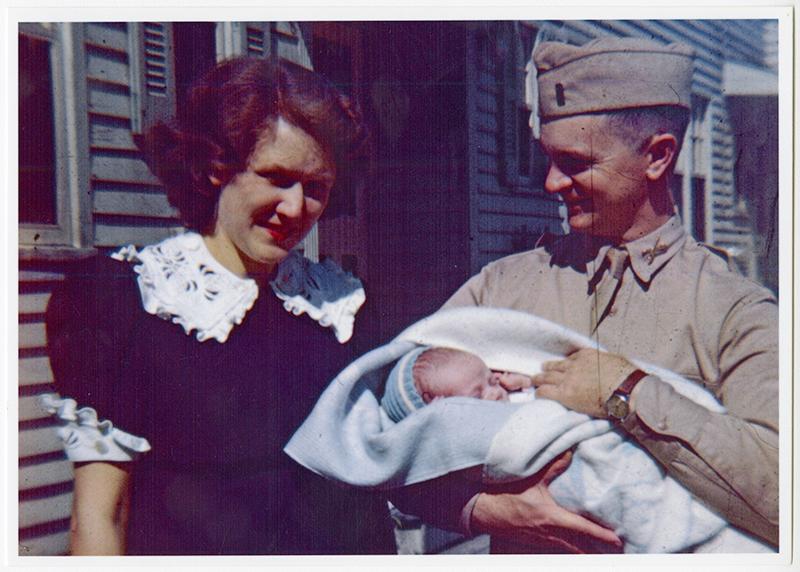Leaving the United States
Time 0:01:30
Return to American Experiences Gallery

Credit: Canadian Museum of Immigration at Pier 21 [DI2016.394.7]
Time 0:01:30
And I had come from a family where my father had been drafted and served five years in the U.S. Army during World War Two and seen enough to realize that war is not good. He was on the winning side and he survived it without any physical injury um but he had seen enough of horrors on both sides that when it was coming time for me to let them know that I was planning to go to Canada to avoid being drafted turned out my father who’s an attorney he decided—he told me he had already written to the Canadian consulate in Chicago to find out what the options were for somebody in my position, he had not named me by name. And I was nervous knowing he was a war vet as how he might react to my plans to avoid military service, well turned out to be a nonissue in my family. Both my parents were very supportive and glad I'd made the decision I had, although they didn't try to talk me into it, they were glad I made that decision. My grandparents, my paternal grandparents who lived nearby, the grandparents I knew the best. By then my grandfather had died, but my grandmother, she was under the attitude that the president must know best, you know, don’t draw attention to yourself, be drafted, you'll find a way to survive it. That was sort of her attitude, so she didn't approve of my plans, but she didn't disown me or try to interfere in any way.
Oral History 16.03.03BB with Bruce Bolin
Canadian Museum of Immigration at Pier 21
Return to American Experiences Gallery
